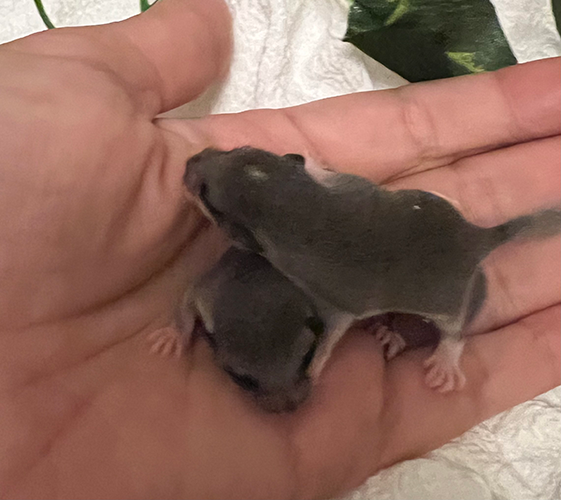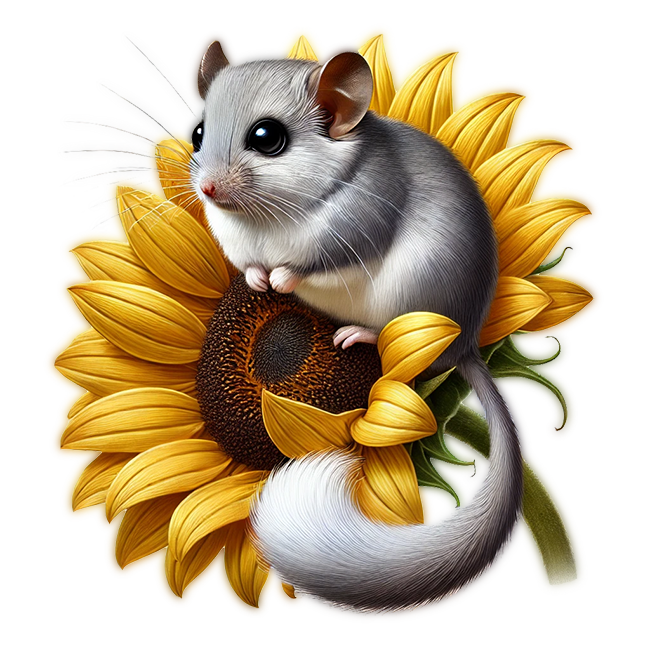Social Preferences
African Pygmy Dormice are considered colony animals and do best with companions of their own species. Larger colonies tend to be more active and vocal, though there is also a higher risk of territorial disputes, particularly among males. Be prepared for possible fighting if you keep multiple males together—or if your group has an uncertain ratio of sexes.
Many keepers find success by separating males and females unless actively breeding or by having one neutered male in a female group. Always have a spare enclosure ready in case of bullying or aggression.
Typical Behaviors
- Nocturnal Activity: Most active at dusk and dawn, dormice may only be glimpsed by owners who stay up later or use soft red lighting to watch them.
- Fast & Agile: They’re quick movers that rely on climbing and jumping through branches. They can leap off unexpected surfaces, making handling a bit of a challenge. We hand tame our pups and they are just a little easier to handle.
- Vocalizations: They produce chirps, twittering, and sometimes sharp barks. Interestingly, the volume can be surprisingly loud given their small size.
- Shy Nature: Many will avoid human handling except when socialized from a young age. With patience, some can learn to tolerate gentle contact even if not handled from pups.
Handling & Taming
A dormouse that hasn’t been handled frequently may be skittish and can bite if cornered or stressed. Never pick them up by the tail (risk of tail damage). Slow, patient handling—particularly during calmer daytime hours—yields the best results. Our pups are handled daily and have even been used to educate children and adults. Hand fed crickets help ;)


